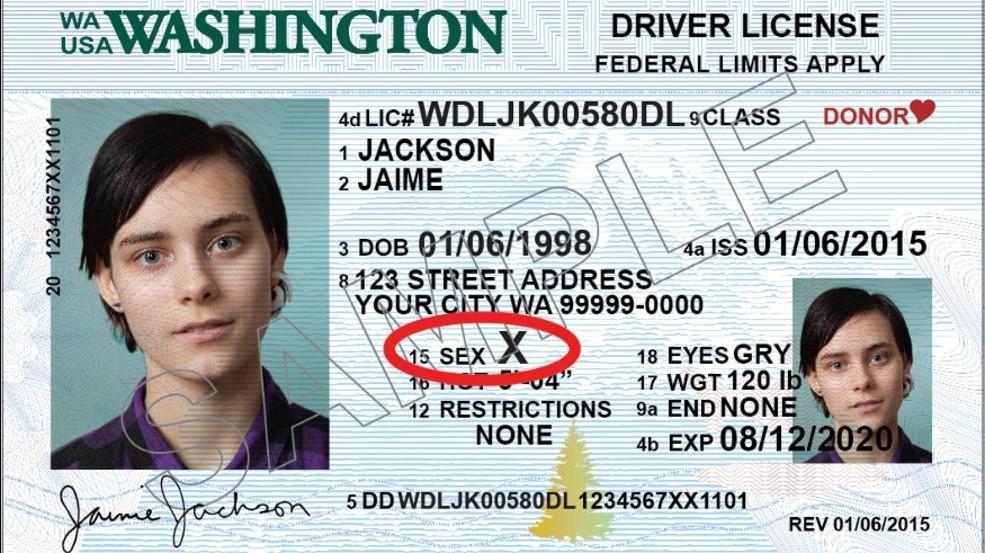On Wednesday, Nov. 13, the Massachusetts Registry of Motor Vehicles announced that it will now allow residents to select the gender designation X instead of M or F on licenses and state IDs. The X marker will signify that an individual is nonbinary, identifying as neither male nor female. Earlier this year, the Massachusetts Senate approved a bill allowing the same thing, but the legislation never passed in the House. I learned about the RMV’s decision through a celebratory Facebook post made by my state senator, Jamie Eldridge. However, as a nonbinary Massachusetts resident, I was not as excited about the news as he was.
According to the Movement Advancement Project, thirteen states now allow their residents the X gender designation on driver’s licenses, indicating that the resident is nonbinary. This is largely regarded as a significant step forward for the recognition of nonbinary gender identities in mainstream society. Although X gender markers are well-intentioned, the additional option is ultimately dangerous. Personally, I don’t want every cashier to whom I show my ID to see an X and realize that I’m nonbinary. I’m comfortable being out at Wellesley, but outside of this environment, I have encountered too much hostility to feel safe inadvertently outing myself every time someone looks at my license.
Furthermore, trans and gender non-conforming people have historically been at risk of harassment and violence from police. The 2015 U.S. Transgender Survey found that 58 percent of people surveyed experienced some kind of mistreatment from law enforcement officers who guessed or knew they were transgender. I fear that an X marker will only make it easier for nonbinary individuals to be harassed and discriminated against.
While risk of harassment is my primary concern with the new gender markers, it’s also my belief that this initiative perpetuates the harmful idea that nonbinary is a “third gender” between male and female. Many nonbinary people are uncomfortable with this concept, because we have a multitude of different experiences that do not fit within the social constructs of male and female. Some nonbinary people still align themselves with their assigned gender, some are transmasculine or transfeminine and some use additional labels, such as agender. There is not one nonbinary gender that can be summed up by a simple X.
I don’t wish to speak on behalf of all nonbinary people with my objection to X markers. In Massachusetts, many trans and nonbinary activists campaigned for this change. When the Senate passed their bill in April, Ev Evnen, Interim Executive Director of the Massachusetts Transgender Political Coalition, said in a speech at the State House that their life would be made easier by an X marker. Evnen chose not to change their license from F to M, because they are neither male nor female, but there was a discrepancy between their masculine appearance and the F on their license that made them nervous every time they had to show their ID.
A much more progressive and inclusive move than X markers would be to remove gender markers from IDs completely. I have seen people make transphobic arguments against changing gender markers, claiming EMTs need to be able to learn people’s “biological sex” from their ID. But by allowing trans people to change their marker from M to F or vice versa, and now allowing X, the RMV has tacitly acknowledged that there is no need for state IDs to reflect one’s assigned gender. If that is the case, why not remove it completely?
If all gender markers were removed from state IDs, binary trans people and nonbinary people alike would not need to apply to the RMV and purchase a new license to reflect their gender, a process that is daunting and stressful for many people. According to Mass.gov, a reprinted license costs $25, but changing one’s legal name and/or gender can be a very expensive process. That is just another fee adding to an overall total many people cannot afford. If you are under 18, parental permission is needed to change any information on your license, and many trans and nonbinary teenagers might not have their parents’ approval.
I appreciate that my state is making efforts to legally recognize that not everyone is male or female, and I am grateful for the activists and politicians who pushed for this recognition. But I have no plans to change my gender marker from F to X. Removing gender markers entirely would simultaneously negate the need for an X marker and prevent nonbinary people from being targeted based on the letter on their license. I have not heard of any successful campaigns to remove gender markers from IDs, but I hope that someday it becomes the norm, in my state and across the country.




